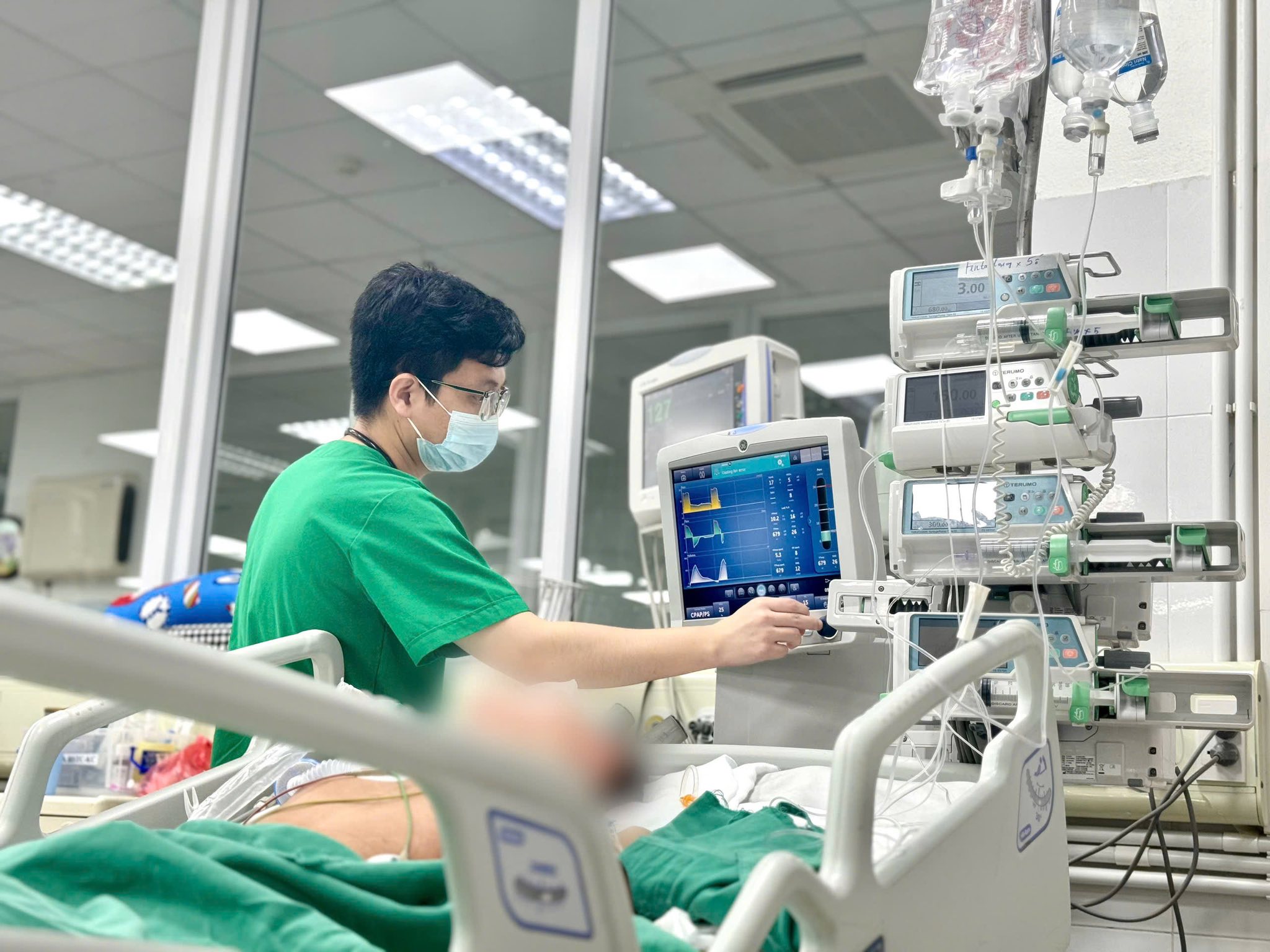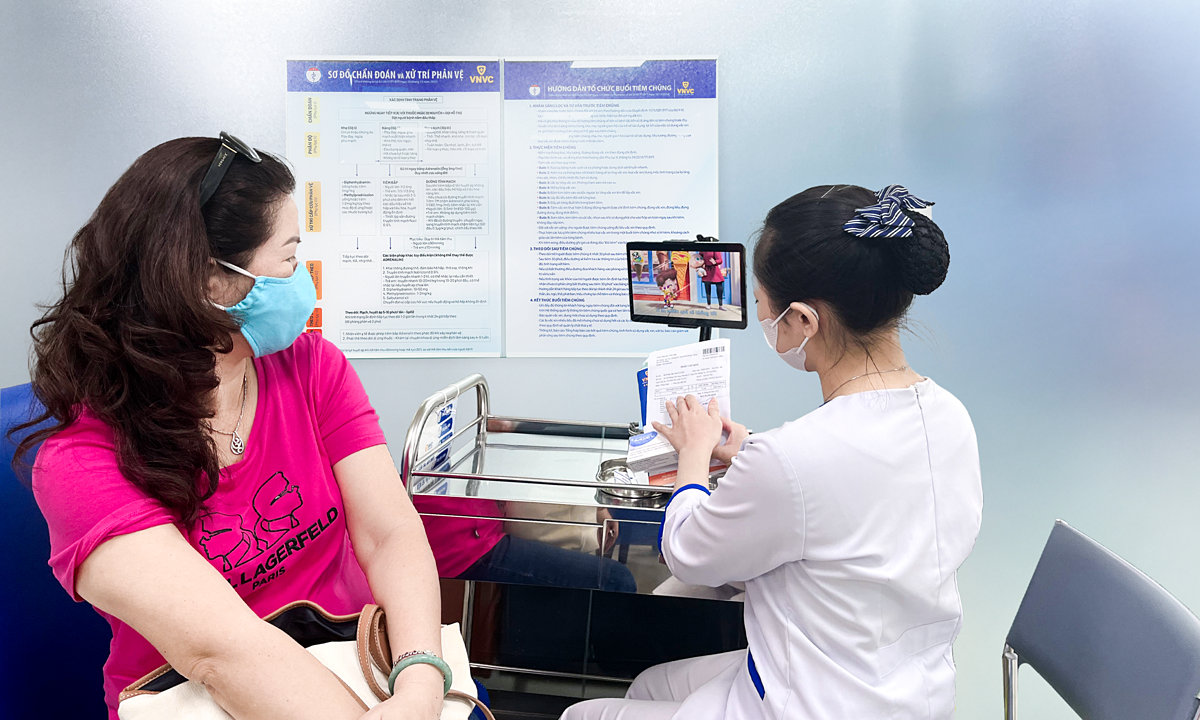Doctor Tong Thi Ngoc Cam, Deputy Medical Director of the Northern Region for VNVC vaccination system, issued this warning as Vietnam continues to record severe cases of Japanese encephalitis in adults. On 23/7, the National Hospital of Tropical Diseases reported treating a 17-year-old male from Hanoi with deep brain tissue damage and severe neurological sequelae, despite over a month of intensive treatment.
The Hospital for Tropical Diseases in Ho Chi Minh City also reported three male patients, aged 33, 26, and 20, with Japanese encephalitis and severe complications such as irreversible quadriplegia, exhaustion, muscle atrophy, and hemiparesis.
"These cases demonstrate that Japanese encephalitis can affect anyone, regardless of age or health status," Doctor Cam warned.
According to Doctor Cam, Japanese encephalitis is a dangerous infectious disease caused by the Japanese encephalitis virus. The disease is transmitted to humans through the bite of infected Culex mosquitoes after they have fed on infected wild birds or livestock such as pigs, buffalo, cows, and horses. According to the WHO, infected individuals may experience nonspecific symptoms like fever and headache. About one in 250 infected people will develop severe illness.
Most cases occur in children under 15, especially between the ages of 2 and 6, due to lack of immunity or vaccination.
 |
The 17-year-old male from Hanoi with Japanese encephalitis, treated at the National Hospital of Tropical Diseases in July. Photo: National Hospital of Tropical Diseases |
The 17-year-old male from Hanoi with Japanese encephalitis, treated at the National Hospital of Tropical Diseases in July. Photo: National Hospital of Tropical Diseases
The incidence is lower in adults, primarily because the disease is more common in rural and suburban areas. Adults living in these areas may have developed natural immunity from childhood exposure. However, with increased travel and trade, adults' exposure and risk of infection have risen. Without prior immunity, vaccination, or booster shots, adults are also highly susceptible.
Doctor Cam cited a 2023 meta-analysis of studies on adults with Japanese encephalitis published in the US National Library of Medicine. Researchers found that the range and area of virus transmission have expanded, with new transmission zones emerging. When the virus enters these new areas, cases in adults often increase.
For example, Australia recorded over 40 cases of Japanese encephalitis across several states between 2021 and mid-2022. In Vietnam, the case of the healthy 17-year-old from Hanoi being treated at the National Hospital of Tropical Diseases indicates a shift in the affected areas.
After entering the bloodstream, the Japanese encephalitis virus has an incubation period of about 5–14 days, often without symptoms. When the virus begins to attack the brain's blood vessels, adults, like children, experience initial symptoms of fever and headache, followed by drowsiness, muscle stiffness, convulsions, and coma. While these are typical symptoms, blood and cerebrospinal fluid tests are necessary for a definitive diagnosis.
Without prompt diagnosis and treatment, the mortality rate can reach 30%. Up to 50% of survivors experience severe long-term effects such as deafness, paralysis, mental disorders, movement disorders, impaired communication, and reduced quality of life.
 |
Adults receiving the Japanese encephalitis vaccine at the VNVC Vaccination Center. Photo: Dieu Thuan |
Adults receiving the Japanese encephalitis vaccine at the VNVC Vaccination Center. Photo: Dieu Thuan
Doctor Cam noted that Japanese encephalitis cases typically peak during the summer months, from April to October, with the highest incidence in July. As there is no specific treatment, vaccination remains the most effective preventive measure. Vietnam currently has three common Japanese encephalitis vaccines available through expanded immunization programs and private services: Jevax (Vietnam), Jeev (India), and Imojev (Thailand). Each vaccine has a different schedule and booster regimen.
Jevax is administered to individuals from 12 months of age. The three-dose primary schedule consists of the second dose 1–2 weeks after the first, and the third dose one year after the second; boosters are given every three years.
Jeev is for individuals aged 12 months to 49 years. The primary schedule is two doses, with boosters recommended based on epidemiological conditions and national guidelines.
Imojev is for individuals 9 months and older. The schedule varies by age. Those aged 9 months to under 18 years receive two doses, one year apart. For those 18 and older, a single dose is sufficient.
If adhering to the three-dose Jevax schedule and booster timing is difficult, individuals can combine it with Imojev, with a specific schedule advised based on the number of Jevax doses already received.
In addition to vaccination, people should protect themselves by avoiding mosquito bites: wear long clothing, use mosquito nets even during the day, and maintain clean living spaces and animal enclosures to eliminate mosquito breeding grounds. Protective clothing should be worn when working outdoors or handling livestock. Regular handwashing, and consuming cooked food and beverages are also essential. Seek immediate medical attention if experiencing symptoms such as fever, headache, or drowsiness.
Tuan An












